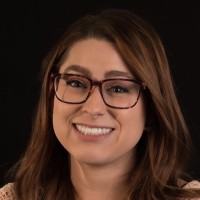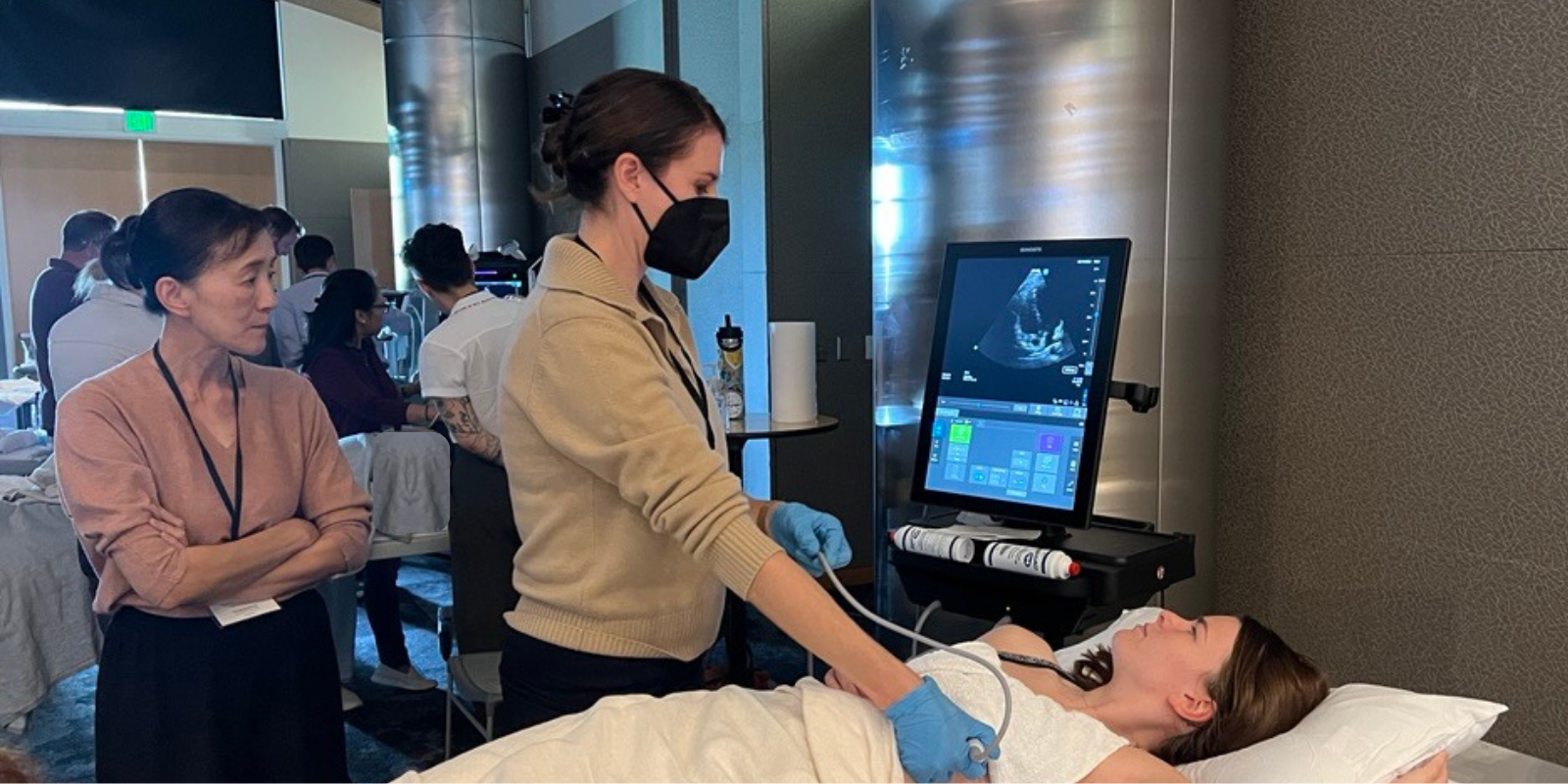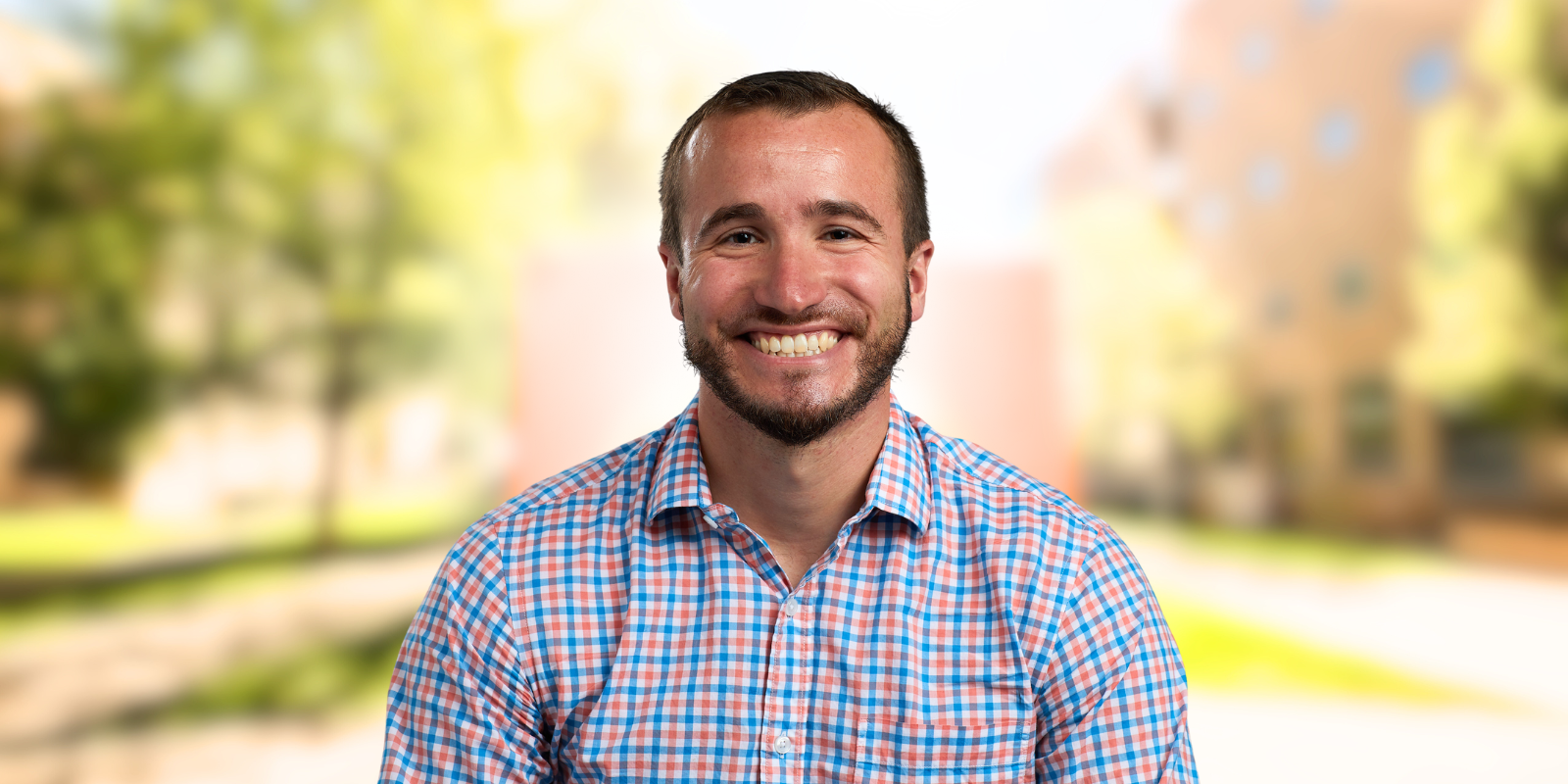Passionate about helping patients with kidney diseases, University of Colorado Department of Medicine fellow and future faculty member Shannon Lyons, DO, has big aspirations — from offering the best clinical care to patients getting a kidney transplant, to conducting pivotal research that improves the transplant process, to dreaming of opening a clinic one day that serves women undergoing transplantation.
As a transplant nephrology fellow in the Division of Renal Diseases and Hypertension, her dreams are becoming a reality. Through rigorous training and invaluable mentorship, Lyons says CU has helped her become a confident physician who always seeks to improve care for patients, especially when it comes to addressing the health disparities women face.
“Women in general are more likely to donate a kidney, but they’re also less likely to get transplanted. There is a disparity there that I would like to investigate in the future,” she says. “The research I do is to help inform my clinical care, because for me, the biggest accomplishment is becoming a better clinician and finding ways to serve my patients better.”
But none of Lyons’ dreams may have materialized if not for one woman in particular — her older sister. Growing up in Rockford, a small town in eastern Washington, Lyons wasn’t sure what her future career would be. But she knew she always wanted to be near her sister, who had dreamed of becoming a doctor since childhood — and even had a teddy bear with a stethoscope to prove it.
“I didn’t come from a family of physicians. My mom was a teacher, my dad was a police officer, and I was a kid with ADHD who didn't know what I wanted. But I am very close with my sister, who is a year older than me, and I essentially followed her all the way to college,” she says. “I became interested in medicine as I went along. And although it wasn’t something I gravitated towards doing in the beginning, now I can’t imagine doing anything else.
“I derive so much purpose from what I do and I love it — and that’s what I hope others know: It’s possible to find your passion along the way.”
 Shannon Lyons, far right, smiles with her sister, far left, for a graduation photo. Image courtesy of Lyons.
Shannon Lyons, far right, smiles with her sister, far left, for a graduation photo. Image courtesy of Lyons.
Finding her niche and carving a path at CU
After graduating from medical school with a doctor in osteopathic medicine, Lyons began her internal medicine residency at the Parkview Medical Center in Pueblo, Colorado. She had hoped to pursue pulmonary and critical care medicine, but after treating many COVID-19 patients, she realized that although she enjoyed it, she also found it very sad at times. Then when she started her second year of residency and began training in nephrology — a specialty that focuses on kidney diseases — Lyons soon realized she had found her niche.
“Nephrology is everything I love about medicine. It involves numbers and solving medical puzzles, and you also get instant gratification from fixing issues for patients and helping them feel better,” she says. “You also care for a wide range of patients, from critically ill patients to younger patients with stable lupus nephritis, a type of kidney disease, who aren’t critically ill.”
Looking for opportunities to expand her knowledge, Lyons contacted the director of the CU Nephrology Fellowship Program and was given the opportunity to work alongside CU faculty and fellows for six weeks while she was still a resident.
“We didn’t do transplants at my hospital in Pueblo, so I had never experienced caring for transplant patients. The first time I got to do that was at CU, and that was the initial spark of my interest in transplant care,” she says. “Being able to take people off dialysis and instead give them a new shiny organ so they can get back to doing what they love in life is so positive. That was a big pull for me — to be able to give patients not just length of life, but quality of life too.”
 Shannon Lyons, right, smiles with her dad as she celebrates her graduation from medical school. Image courtesy of Lyons.
Shannon Lyons, right, smiles with her dad as she celebrates her graduation from medical school. Image courtesy of Lyons.
In 2022, Lyons began her nephrology fellowship at CU, which she completed in two years. Now, she is completing an additional year of training as a transplant nephrology fellow and serving a dual appointment as an instructor, giving her the ability to continue honing her skills and care for patients.
“Coming from a more rural program during residency to being at a big university with all of these faculty, including faculty at different hospitals, I was blown away,” she says. “Here, I feel really supported and have absorbed so much from my mentors. It’s been amazing.”
 Shannon Lyons, left, smiles while standing beside another medical resident as she holds up her phone, which shows an acceptance letter into CU's nephrology fellowship program. Image courtesy of Lyons.
Shannon Lyons, left, smiles while standing beside another medical resident as she holds up her phone, which shows an acceptance letter into CU's nephrology fellowship program. Image courtesy of Lyons.
Transplanting research to improve clinical care
Only a fraction of people who need a kidney transplant actually get one. Nearly 90,000 people were on the waiting list for a kidney as of September 2024, and only 27,332 kidney transplants were performed in 2023, according to the Health Resources and Services Administration, an agency of the U.S. Department of Health and Human Services.
At CU, Lyons is contributing to collaborative research projects that delve into larger issues within the transplant process. For example, she is working with James Cooper, MD, a professor in the renal diseases and hypertension division, to investigate “frailty scoring” in patients who are needing a kidney transplant.
“When we evaluate people before a transplant, we assess whether patients are too frail to survive surgery,” she says. “For this research, we want to see how our hospital’s frailty data correlates with several different outcomes, including making it on the waitlist and survival after transplant, to see if this score is reliable and actually correlates with transplant outcomes.”
Knowing that women are more likely to donate a kidney but less likely to receive a kidney donation, Lyons hopes this research may give further insight into why that disparity exists. She suspects women may be perceived as frail more often than men.
Lyons’ interest in improving health outcomes for women in nephrology stems from research she did with Manuel Urra, MD, an assistant professor in the division.
“We wrote a review article about thrombotic microangiopathy, a type of kidney disease, in pregnant women,” she says. “That’s what initially got me thinking more about women’s health.”
All the research Lyons does is fuel for her clinical practice, as she aims to apply her findings into the care she provides to patients. It’s also been fuel for future aspirations.
“One day, I wonder if we could establish a women’s health clinic for transplant patients. I think we could establish a clinic staffed by female clinicians to care for female patients,” she says. “I’m a ways away from being able to do that, but I think that’s the great thing about CU. If you can present your data and show the need, you have a chance to do something revolutionary.”
 Shannon Lyons, far left, smiles with other medical residents during her residency training at Parkview Medical Center in Pueblo, Colorado. Image courtesy of Lyons.
Shannon Lyons, far left, smiles with other medical residents during her residency training at Parkview Medical Center in Pueblo, Colorado. Image courtesy of Lyons.
Advocating for patients
One of the biggest lessons Lyons has gained from her training is learning how to best advocate for her patients and their wishes.
“Being able to have those hard conversations and identify what the patient's goals are is important, because maybe their goal isn’t to live as long as possible. Some people prioritize quality of life over quantity. Learning how to navigate that is something that I specifically learned a lot more about in fellowship,” she says.
“I tell other trainees to not be intimidated by more senior faculty when it comes to advocating for patients. If you have a gut feeling that something is going on with a patient or if you disagree with a decision, say it,” she adds. “It’s always better to say it than to not and wish you had later.”
It’s a lesson she will continue teaching trainees this fall when she takes on a new role as an assistant professor and attending in transplant nephrology at CU.
“Overall, my experience here has helped me grow in my knowledge and made me into a more confident physician, and the credit goes to all my amazing attendings. You have so much good knowledge being poured into you and see these providers do well by their patients,” she says. “I love being here, and so I’m excited to continue to be a part of it.”
.png)



